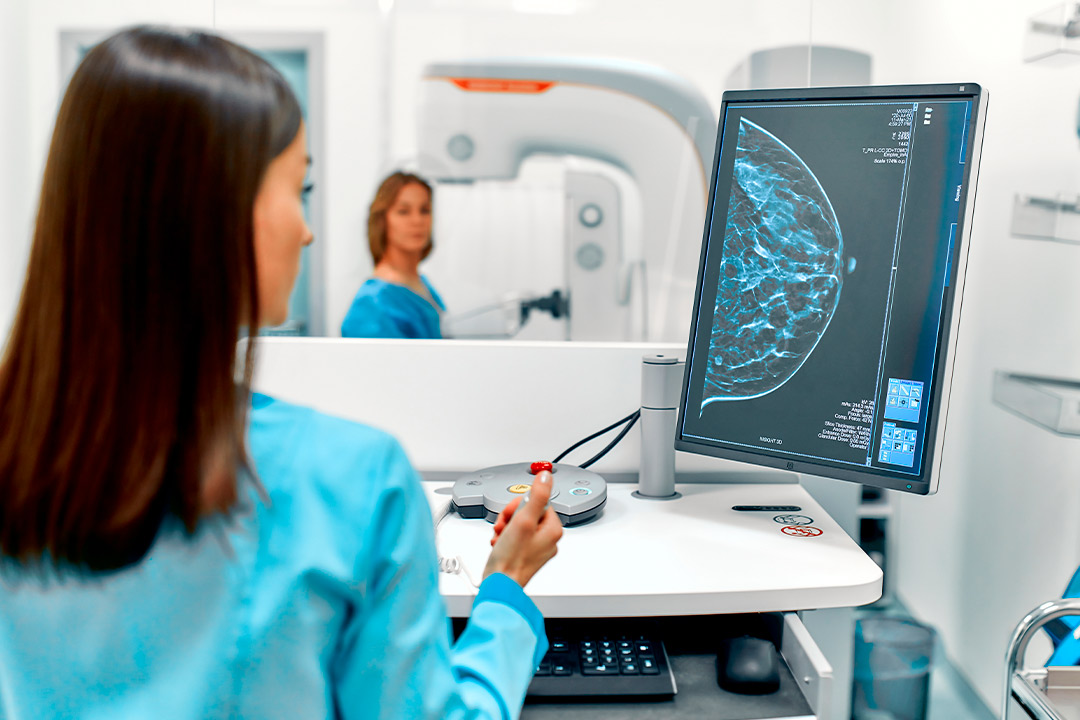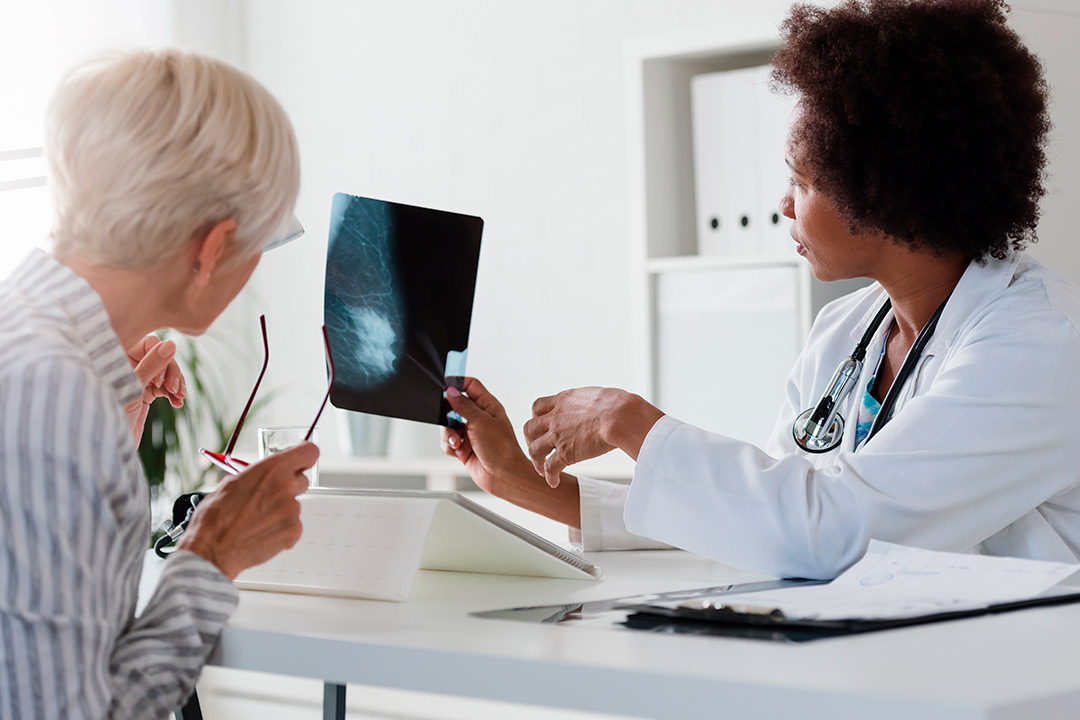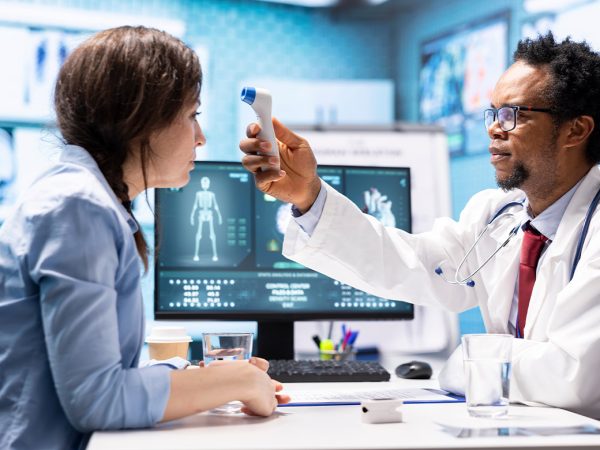October is Breast Cancer Awareness Month: Discover How Screening Saves Lives
Breast cancer affects millions of women worldwide, making it one of the most common cancers among women of all races. While the diagnosis can be daunting, advancements in medical science have significantly improved outcomes, particularly when the disease is detected early. This is why Breast Cancer Awareness Month is significant. It shines a spotlight on the importance of education, screening, and support for those affected.
The impact of breast cancer extends beyond physical health. For individuals, it can mean emotional distress, financial burden, and lifestyle adjustments. For communities, it affects families, workplaces, and healthcare systems. We can collectively reduce these impacts through awareness and preventive care.
Breast Cancer in the U.S.: Key Statistics

Acknowledging the prevalence and progression of breast cancer highlights the ongoing need for awareness, screening, and continued research. The chart below presents essential data, including lifetime risk, annual incidence trends, and how cases are distributed by age and stage of diagnosis.

The Power of Early Detection
The evidence on early detection is clear: regular screening saves lives.
- Women who undergo regular screening have a 25% lower risk of dying from breast cancer.
- The five-year survival rate for localized cases is 99%, compared to just 27% for metastatic cancers, a stark reminder of the importance of early diagnosis.
- Approximately 10% of breast cancers present without a lump, emphasizing the importance of routine screenings beyond self-exams.
- Early detection also enables less aggressive treatment options and improves overall outcomes.
- Studies confirm that annual screenings reduce mortality, even among women in their 80s.
The graphs below illustrate how early-stage detection and regular screening dramatically improve survival rates and lower mortality risk.
Survival Rate by Stage of Breast Cancer Impact of Regular Screening on Mortality Risk

Mammography remains the gold standard for breast cancer screening. This specialized X-ray examination can detect tiny abnormalities in breast tissue long before they can be felt during a physical examination, often 2-3 years earlier. Modern screening technologies include digital mammography, 3D mammography (tomosynthesis), ultrasound, and MRI, each playing a key role in comprehensive breast health assessment.
Addressing Common Concerns
Medical experts recommend regular screening beginning at age 40 for women with average risk, with specialized guidelines for those with higher risk factors. Remember, breast awareness also means knowing what’s normal for your body and reporting any changes to your healthcare provider immediately. Despite the clear benefits, many women avoid mammograms due to common misconceptions:
- Discomfort: While mammograms may cause temporary pressure or discomfort, the procedure typically takes just a few minutes and is well tolerated by most women.
- Radiation concerns: Modern mammography uses minimal radiation, the benefits far outweigh any minimal risk.
- Fear of results: Remember that 80-85% of breast lumps are benign. Early detection gives you the best chance at successful treatment.
- Time constraints: The exam takes just minutes, but those few minutes could save your life.
What to Expect During Your Mammogram

Being prepared for a mammogram can make the process smoother and less stressful. Here’s a breakdown of what to expect during your appointment and how to schedule your screening:
- The procedure is quick, usually taking about 20-30 minutes total.
- You’ll be asked to undress from the waist up and wear a gown during the exam.
- The technician will position your breast on the mammography machine, and a plastic plate will compress the breast for a few seconds while images are taken.
- While some discomfort may be felt during compression, the procedure is generally tolerable and brief.
- Results are typically available within a few days, with Kuye Medical Group offering a quick turnaround for test results.
How to Schedule Your Screening
- Contact Kuye Medical Group directly to request a mammogram referral.
- Have your insurance information ready when scheduling your appointment.
- For those seeking financial assistance, contact the screening facility first to inquire about available programs.
- Most facilities offer online scheduling options for convenience.
Supporting Yourself and Others: Spreading Awareness and Taking Action
Breast cancer affects not only the individual diagnosed but also their family, friends, and wider community. Supporting those affected while spreading awareness is a powerful way to make a difference in the fight against breast cancer. A holistic approach to support addresses physical, emotional, and practical needs, recognizing that comprehensive care is essential for overall well-being.
Supporting Loved Ones with Breast Cancer
When someone you care about is diagnosed with breast cancer, your support can make a significant difference in their journey. Remember that emotional health is equally important as physical health during treatment and recovery. Here are ways you can provide meaningful support:
- Listen actively: Sometimes the most powerful support is simply being present and listening without trying to solve everything.
- Offer specific help: Instead of saying “Let me know if you need anything,” offer concrete assistance like meals, transportation to appointments, or childcare.
- Learn about their diagnosis: Understanding the basics of their specific situation helps you provide better support and reduces misunderstandings.
- Respect their decisions: Treatment choices are deeply personal; support their decisions even if they differ from what you might choose.
- Maintain normalcy: Continue including them in regular activities as appropriate, which helps preserve a sense of identity beyond the diagnosis.
Encouraging Screening and Awareness

Sharing information about breast cancer screening can literally save lives. With early detection increasing survival rates dramatically, encouraging others to get screened is one of the most important actions you can take. Here’s how to effectively spread awareness:
- Share your story: If you’ve had a mammogram or been affected by breast cancer, talking about your experience can normalize screening and early detection.
- Use social media responsibly: Share accurate information from reputable sources about screening guidelines and breast health.
- Organize community events: Consider hosting discussions, walks, or fundraisers to raise awareness about breast cancer screening.
- Encourage “screening buddies”: Offer to accompany friends or family members to their mammogram appointments for moral support.
Remember that awareness goes beyond pink ribbons. It means recognizing that mammograms can detect cancer up to three years before it can be felt, making regular screening imperative for early intervention.
By supporting others, spreading accurate information, and connecting people with resources, you become part of the solution in the fight against breast cancer. Awareness and early detection are powerful tools that truly save lives.
October is Breast Cancer Awareness Month, a time to prioritize your health with regular screenings. At Kuye Medical Group, we understand the importance of early detection in improving survival rates and offering better treatment options. Our expert team provides comprehensive screening services, including mammograms, to help you stay proactive about your breast health. Don’t wait for symptoms to appear. Early detection can save lives. Schedule your screening appointment today and take a proactive step towards your health. Book your appointment now.





